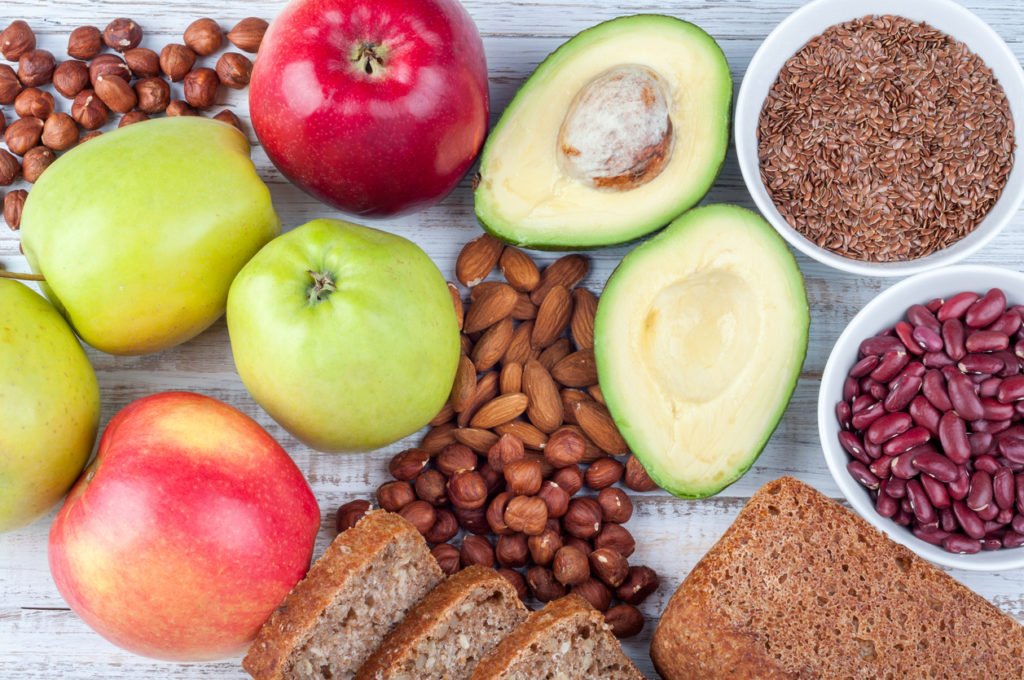Pre Hike Foods | During Hike Foods
When talking about the most important foods to be eating- and what not to be eating- during a hiking trip, it’s important to understand how to get your body as prepared as possible for your excursion before you even start. This is a science-based guide to maximize your hiking performance by just switching around the foods you eat and when you eat them.
If you are interested in the best backpacking foods, be sure to check out our post.
The first main point, critical for all performing long-duration activities, is that your body uses the carbohydrates, fats and proteins that you eat for energy during each hike. The second main point- which is by far the most important- is that your body can make energy out of carbohydrates faster than it can fat or protein. Imagine your body burning carbohydrates like throwing dry leaves into a fire vs fats and proteins which are big logs- the leaves burn fast and eventually will dissipate, leaving the logs to burn very slowly but for a long time. Maintaining moderate levels of blood glucose, the term for digested carbohydrates, throughout your hike allows your muscles to have adequate energy as you crush through those miles!
Tip #1: Keep stored carbohydrates high!
Pre Hike Carbs:
Eat the bulk of your carbohydrates two days before your hike, especially after any workouts you do during these days. The quality of the carbohydrates aren’t as important here before your hike as they are during or right before your hike.
Pre-Hike Carbohydrate Food Ideas:
- Quinoa
- Leafy greens
- Oats
- Lentils
- Fruits
- Potatoes
- Whole grain breads
- Nuts,
- Rice
- Pasta
The Science Behind Carbs
Our muscles actually store carbohydrates within them that allow for immediate energy when you start your hike. Having low-carbohydrate diets or doing extreme intense lower body exercises 24-48 hours before your hike will hinder your performance before you even start! Tips to prevent this?
- Eat a diet high in carbohydrates starting at least 48 hours before your hike (50-60% of your daily calories divided by 4, the calories per each gram of carbohydrate, will give you the number of grams you should be consuming)
- If you’re doing a multi-day hike or you are training this one’s especially important for you! Eat the bulk of your daily carbohydrates immediately after exercising to allow the muscles to absorb as much as they can!

Tip #2: Protein and Glycemic Index
You want a meal consisting of protein and carbohydrates with a moderate-low glycemic index load of 60 and below. Let’s take a step back and discuss why each of these are vital for maximizing your hiking performance.
Pre Hike Proteins
- Breakfast wrap:
- Pick your favorite wrap- preferably with some nutrient-packed seeds or quinoa
- Cook beans or rinse canned beans (Nobody needs that extra sodium!)
- Cook eggs, Parmesan cheese, spinach, eggs, onions, tomatoes, and peppers
- Salsa, sriracha, mashed avocado or any other yummy blood-sugar-friendly add ins!
- Interestingly enough, quick oats have moderately to high glycemic indexes (between 56 and 69). While it is many hiker’s go to pre-hiking meal, spending the extra time to prepare classic steel-cut or rolled oatmeal will reduce a future crash of blood sugar, as it has a low glycemic index (below 50).
What Should You Eat During A Hike?
During Hike Food Ideas:
- A sandwich with lean meats or tofu and vegetables would be a great option
- Trail mix got its name for a reason! This is an awesome for a snack along the way.
- Apples have a good amount of fiber which helps balance blood sugar! Apples provide a little bit of protein, and carbohydrates.
The Science Behind Protein and Glycemic Index
- During a hike, our body will use carbohydrates, fats, and yes- proteins. By providing your body with dietary protein before your hike, you are giving your body plenty of protein to consume for energy, sparing your muscles from getting broken down!
- What you need to know about glycemic index is that foods with high ratings of this will result in a blood glucose spike followed by a crash. Since glucose is the source of energy for the brain- you can imagine how a crash of glucose while you’re hiking (which is using up even more glucose) will not go over well. A crash of blood glucose will also force the body to use primarily fat instead of carbohydrate (an event referred to as “hitting the wall” in athletic events) and this will slow you down and make your hike less pleasant!
- Here’s a great guide to understanding the glycemic index!
References
- Coyle, E.F. Carbohydrate Supplementation during Exercise. J Nutr 122:788-795, 1992.
- https://www.healthline.com/nutrition/glycemic-index
- https://www.hsph.harvard.edu/nutritionsource/carbohydrates/carbohydrates-and-blood-sugar/
- https://medlineplus.gov/ency/patientinstructions/000941.htm

Victoria Bandera has a Master’s degree in Health and Exercise Science from Colorado State University and is an ACSM certified Exercise Physiologist. Currently, Vicky is at the University of Utah working on her PhD in Population Health Sciences and working in the Huntsman Cancer Institute. She is passionate about the use of physical activity and nutrition as a source of longevity and overall health. Find her on some adventures with small health-related posts at @viqeeinthewoods on Instagram!
